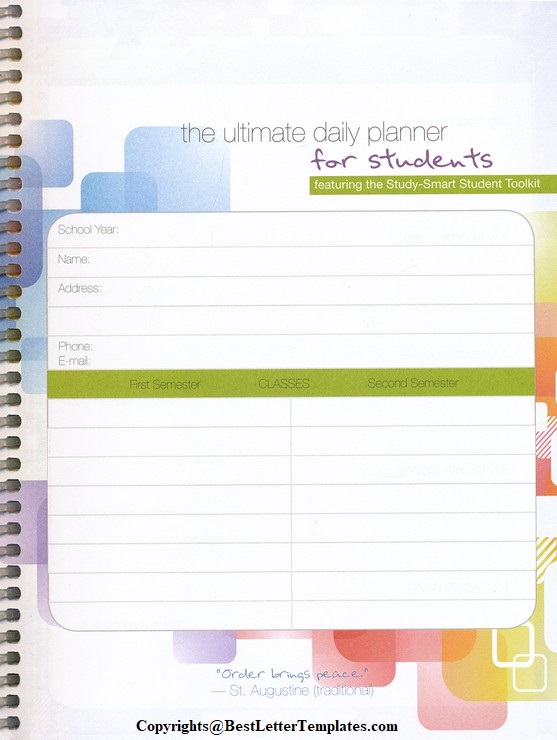

This section is intended for items due the next day or items that will be worked on immediately (any items on this list that are not completed should be moved to the next day when possible so that they are not accidentally overlooked or forgotten). In the Assignment section, students can track homework assignments for each class. Help your Student with School Organization

These printable daily planner pages will allow you to sit with your child to review academic responsibilities and tasks like homework and upcoming projects while also providing the opportunity for dialogue around feelings, gratitude, and successes.

Whether you are an adult or a child, taking a few moments of your day to reflect can be a simple but effective way to unpack and process those feelings. In times like these, it can be hard to see the good in the more difficult days. While there are prompts to identify struggles within their day, the end-goal is to inspire positivity and reflection. The goal is to teach them to effectively communicate their feelings, identify both difficult and positive aspects of their day, and to provide them a reminder to be thankful. To do this, I have added a section to these printable academic planner pages that includes a section helping them to easily identify their mood as well as a daily journaling section with prompts for further thought and daily gratitude. Helping your Child Process Big FeelingsĪcademics and organization are obviously very important, but I wanted a way to offer our younger students the opportunity to share their feelings in a way that becomes a part of their daily routine as well. Keeping track of things like homework, projects, and other to-dos are an obvious starting point but, considering the current state of things, I felt compelled to dive a little deeper than that. In developing printable daily planner pages for kids, my goal was to help with establishing organization skills. Because of this, it can be more difficult for younger children to stay organized and to identify and vocalize big feelings. They are also still learning the executive functioning skills required for self-organization and task management. It goes without saying that younger students are far less self-aware than, say, high school students. So how can we help them through this difficult time? Those skills are more relevant this year than perhaps any other before. Children, on the other hand, have yet to gain these important skills and may struggle.Īs parents, we play a huge role in developing our children’s ability to be resilient, organized, and focused. Our children are probably both excited and nervous to be returning to school and I think it goes without saying that parents are feeling the weight of it all too.Īdults, typically, have gained some experience dealing with stressful situations which allows us to better process some of these difficult emotions and remain productive. While this time of year inevitably brings with it some sense of anxiety, this year certainly offers a bit more than others. The beginning of the school year is here.


 0 kommentar(er)
0 kommentar(er)
